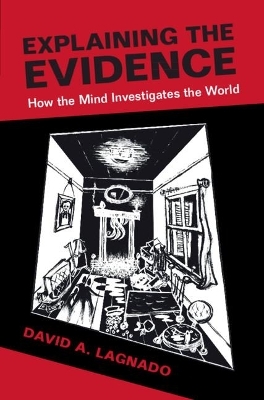
Explaining the Evidence
How the Mind Investigates the World
Seiten
2021
Cambridge University Press (Verlag)
978-0-521-18481-6 (ISBN)
Cambridge University Press (Verlag)
978-0-521-18481-6 (ISBN)
This book is for students, researchers and academics interested in reasoning and evidence. It presents a novel perspective on human thinking, exposing common pitfalls and proposing new methods to help make better decisions. The author uses crime cases to show how to understand both legal and everyday problems.
How do we make sense of complex evidence? What are the cognitive principles that allow detectives to solve crimes, and lay people to puzzle out everyday problems? To address these questions, David Lagnado presents a novel perspective on human reasoning. At heart, we are causal thinkers driven to explain the myriad ways in which people behave and interact. We build mental models of the world, enabling us to infer patterns of cause and effect, linking words to deeds, actions to effects, and crimes to evidence. But building models is not enough; we need to evaluate these models against evidence, and we often struggle with this task. We have a knack for explaining, but less skill at evaluating. Fortunately, we can improve our reasoning by reflecting on inferential practices and using formal tools. This book presents a system of rational inference that helps us evaluate our models and make sounder judgments.
How do we make sense of complex evidence? What are the cognitive principles that allow detectives to solve crimes, and lay people to puzzle out everyday problems? To address these questions, David Lagnado presents a novel perspective on human reasoning. At heart, we are causal thinkers driven to explain the myriad ways in which people behave and interact. We build mental models of the world, enabling us to infer patterns of cause and effect, linking words to deeds, actions to effects, and crimes to evidence. But building models is not enough; we need to evaluate these models against evidence, and we often struggle with this task. We have a knack for explaining, but less skill at evaluating. Fortunately, we can improve our reasoning by reflecting on inferential practices and using formal tools. This book presents a system of rational inference that helps us evaluate our models and make sounder judgments.
David Lagnado is Professor of Cognitive and Decision Sciences in the Department of Experimental Psychology, UCL. He has written over 100 articles and co-authored a textbook on the psychology of decision making. He has worked with US intelligence, the UK government and various legal and financial institutions, looking at methods to improve reasoning and decision making.
1. The Cliff Death; 2. Models in Mind; 3. Causal Modelling; 4. Thinking Beyond Biases; 5. Expert Reasoning in Crime Investigation; 6. Questions of Evidence; 7. Competing Causes; 8. Confirmation Bias: Good, Bad and Ugly; 9. Telling Stories; 10. Idioms for Legal Reasoning; 11. Causal Reasoning in a Time of Crisis; References.
| Erscheinungsdatum | 11.10.2021 |
|---|---|
| Zusatzinfo | Worked examples or Exercises |
| Verlagsort | Cambridge |
| Sprache | englisch |
| Maße | 151 x 228 mm |
| Gewicht | 480 g |
| Themenwelt | Geisteswissenschaften ► Psychologie ► Allgemeine Psychologie |
| Geisteswissenschaften ► Psychologie ► Verhaltenstherapie | |
| Recht / Steuern ► EU / Internationales Recht | |
| Recht / Steuern ► Strafrecht ► Kriminologie | |
| ISBN-10 | 0-521-18481-9 / 0521184819 |
| ISBN-13 | 978-0-521-18481-6 / 9780521184816 |
| Zustand | Neuware |
| Informationen gemäß Produktsicherheitsverordnung (GPSR) | |
| Haben Sie eine Frage zum Produkt? |
Mehr entdecken
aus dem Bereich
aus dem Bereich
wie Affekte innere Entwicklung ermöglichen
Buch | Softcover (2023)
Klett-Cotta (Verlag)
30,00 €


